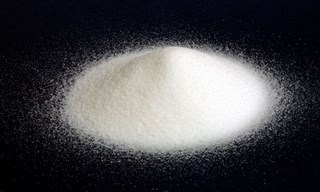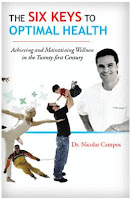 Extra, extra…! Sugar found to be deadly to people with heart disease. So says a recent study published in the latest JAMA Internal Medicine (published online February 03, 2014). Not only are most Americans consuming more than the safest amounts of daily sugar, but 1 in 10 are taking in twenty five percent or more of their daily calories from the sweet stuff. And the results showed that those people taking in the most sugar have an increased risk of dying from cardiovascular disease (CVD).
Extra, extra…! Sugar found to be deadly to people with heart disease. So says a recent study published in the latest JAMA Internal Medicine (published online February 03, 2014). Not only are most Americans consuming more than the safest amounts of daily sugar, but 1 in 10 are taking in twenty five percent or more of their daily calories from the sweet stuff. And the results showed that those people taking in the most sugar have an increased risk of dying from cardiovascular disease (CVD).
The study, a prospective cohort of a nationally representative sample of US adults taken from the National Health and Nutrition Examination Survey (NHANES) of 1998-2010, looked at the diets of more than 30,000 American adults aged 44 on average, and did fifteen years of follow up to analyze death risk as it related to sugar and CVD. The results, according to Lead author Quanhe Yang of the U.S. Centers of Disease Control and Prevention, were “sobering”.
Study participants were divided into five groups according to sugar intake, from less than 10 percent of daily calories—the safest amount—to more than 25%. As sugar intake increased so did the risk of dying from heart disease, and it did so significantly.
 People getting more than 25% of their daily calories from sugar had a nearly three times increased risk of dying from CVD when compared to people getting the least amount.
People getting more than 25% of their daily calories from sugar had a nearly three times increased risk of dying from CVD when compared to people getting the least amount.
For those who got more than 15%—equivalent to about two cans of soda out of 2,000 calories daily—the risk was almost 20% higher than the safest level. If you don’t know, a 12-ounce can of non-diet soda contains about 9 teaspoons of sugar or about 140 calories. US government dietary guidelines issued in 2010 say “empty” calories including those from added sugars should account for no more than 15% of total daily calories. Despite this, there is no universal consensus on how much sugar is too much.
Researchers focused on sugar added to processed foods or drinks, or sprinkled in coffee or cereal. Many “regular” foods have added sugar, including many brands of packaged bread, tomato sauce and salad dressing. Naturally occurring sugar, in fruit and some other foods, wasn’t counted.
“Too much sugar does not just make us fat; it can also make us sick,” said Laura Schmidt, a health policy specialist at the University of California, San Francisco. And says Dr. Jonathan Purnell, a professor at Oregon Health & Science University’s Knight Cardiovascular Institute, that while the research doesn’t prove “sugar can cause you to die of a heart attack”, it adds to a growing body of circumstantial evidence suggesting that limiting sugar intake can lead to healthier, longer lives.
 Yes I will step out on limb here and say that sugar might be one of if not the major factor in the high incidence of CVD in western society. Heart disease has risen right along with the prevalence of adding sugar to everything from snacks to “staples,” and my observation in doctor school was that, along with tobacco and alcohol, sugar led to the greatest damage to human physiology. Not just heart disease, but diabetes, vascular disease, liver damage, ocular disease, kidney disease…and the list goes on and on.
Yes I will step out on limb here and say that sugar might be one of if not the major factor in the high incidence of CVD in western society. Heart disease has risen right along with the prevalence of adding sugar to everything from snacks to “staples,” and my observation in doctor school was that, along with tobacco and alcohol, sugar led to the greatest damage to human physiology. Not just heart disease, but diabetes, vascular disease, liver damage, ocular disease, kidney disease…and the list goes on and on.
We have been chasing one dead end after another when it comes to causes of heart disease, including the current favorite: elevated cholesterol. But despite a few modest improvements, heart disease remains the number one killer in the US. Well can we please start looking a little harder at sugar now, then? Duh—even with regard to the obesity epidemic, sugar is not taken as seriously as some other far reaching theories like genetics and hormones. C’mon…
Listen, many of us that think about health regularly have suspected sugar as major detriment to health for a long time. I can tell you from my own experience that significantly reducing sugar from my diet (I’m not 100%)—which I did almost five years ago—was harder than quitting smoking or drugs/alcohol. The stuff is mega-addictive! Processed foods with massive amounts of hidden sugar are some of the most popular dishes in America, so it isn’t too hard to see why most are getting unhealthy amounts of sugar in their daily intake (the average American consumes forty four pounds of sugar per year).
And don’t think cold hard cash isn’t a factor in our delayed approach to looking at sugar, either. The sugar cartel is huge and powerful. You don’t get embedded into the world food supply at random. So really no surprises there…but really you don’t have to be another casualty. If you didn’t know before, you do now—sugar is a killer. Give it up today (or mostly, like me), and I can almost guarantee that by tomorrow (okay maybe over the next few months) you won’t miss it at all.
























